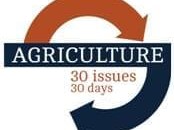 AgForce Queensland yesterday launched its 30 issues in 30 days initiative to bring issues of crucial importance to the viability of agricultural operations to the urgent attention of policy makers. The first issue identified on day one was live exports, and today AgForce focuses on transport infrastructure. Beef Central will keep readers up to date with the issues highlighted during the remainder of the campaign. For more information visit AgForce Queensland's website here.
AgForce Queensland yesterday launched its 30 issues in 30 days initiative to bring issues of crucial importance to the viability of agricultural operations to the urgent attention of policy makers. The first issue identified on day one was live exports, and today AgForce focuses on transport infrastructure. Beef Central will keep readers up to date with the issues highlighted during the remainder of the campaign. For more information visit AgForce Queensland's website here.
AgForce Queensland has today shifted focus of its ‘Agriculture – 30 Issues, 30 Days’ campaign to transport infrastructure and called for an urgent review of current facilities and renewed public investment in road and rail networks.
Latest research from the Australian Farm Institute shows transport accounts for up to 48.5pc of the farm gate value of farm produce with an average of 8.75pc for domestic delivery and 23.64pc for international.
Issues pertaining to rail and port access and the rapid degradation of roads and other infrastructure further places pressure on the transport network. Additionally, competition from the resources sector and a shortfall in current allowable trailer combinations dramatically adds to transport costs.
AgForce Southern Inland Queensland President, Grant Maudsley, said current investment in transport infrastructure was stifling the growth of the sector and limiting its ability to thrive and contribute to the state’s economy.
“For example, the Toowoomba bypass, not being able to bring longer units into Brisbane, old and unsuitable bridges in Rockhampton and the bypass in Sarina are causing bottlenecks of commodities that cost people real money and impinge upon the entire industry,” Mr Maudsley said.
Specifically, AgForce Queensland has called for:
-
Prioritisation of major livestock infrastructure projects in funding cycles:
- Rebuild the Fitzroy River Bridge in Rockhampton to withstand higher productivity vehicles for the cattle intensive Fitzroy basin while also providing improved access to JBS Australia and Teys Australia facilities;
- Upgrade the road for Type 1 Road Trades for access to the JBS Australia Dinmore facility;
- Port upgrades to increase agricultural export capacity whilst relieving stress on the land freight network;
- An additional crossing for the Toowoomba range as a matter of priority;
- All regional supply chains must allow combinations such as B-Doubles and Triples to complete their journey without having to break down for any reason from start to finish;
- Government must investigate the feasibility of rail as the preferred transport provider for grain and livestock, including a long term forecast for capacity and contestability in relation to the whole of supply chain;
- Relationship between State and Local Government Roads should be mapped to clearly identifiy problem areas, pinch points, permitting issues and ‘wear and tear’ in order to better contribute to a whole of supply chain decision making process in terms of infrastructure and roads project prioritisation.
Livestock and Rural Transporters Association of Queensland President, David Scott, said public safety was also at the crux of calls for change.
“By going into better combinations of vehicles, yes they might be longer, but the safety issue is paramount to this argument,” Mr Scott said.
“For example from Roma saleyards and the local feedlot by going from B Doubles to a bigger combination we can save 1752 truck movements in any one year from Toowoomba to Roma.
“It’s decreasing the amount of traffic on the road by putting bigger and better units on the road.”
Source: AgForce Queensland
